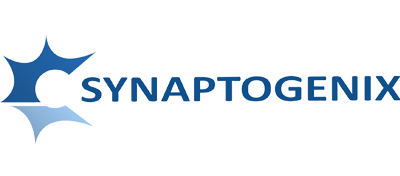Neurotrope Enters Collaborative Agreement with Icahn School of Medicine at Mount Sinai for use of Bryostatin-1 in the Treatment of Niemann-Pick Disease Type C
– Neurotrope enters into world-wide, exclusive license agreement with Mount Sinai; Files related provisional patent for Bryostatin-1 –
Plantation, FL – July 22, 2014 – Neurotrope Bioscience, Inc., a subsidiary of Neurotrope, Inc. (OTCQB: NTRP) has signed a world-wide, exclusive license agreement with the Icahn School of Medicine at Mount Sinai (Mount Sinai) to utilize its proprietary information and data package for the use of Bryostatin-1 in the treatment of Niemann-Pick Type C Disease (NPC), a rare disease, mostly of children who are afflicted with Alzheimer-like symptoms. The license also covers other diseases and disorders relying on activation of PKCepsilon, an enzyme which is important to the health of certain cells.
NPC is an orphan disease, defined by the U.S. Food and Drug Administration as a rare disease affecting fewer than 200,000 Americans, which will provide the drug developer with a seven-year period of U.S. marketing exclusivity if the drug: Is the first of its type approved for the specified indication, or; demonstrates superior safety or efficacy, or; provides a major contribution to patient care versus another drug of its type previously granted the designation for the same indication. In addition, orphan drug status provides company tax credits for clinical research costs, the ability to apply for annual grant funding, clinical research trial design assistance and waiver of Prescription Drug User Fee Act (PDUFA) filing fees.
This development program is being conducted in partnership with Dr. Yiannis Ioannou, Professor of Genetics and Genomic Sciences at Mount Sinai. In addition, the Company has applied, on behalf of itself and Mount Sinai, for a provisional patent with the U.S. Patent and Trademark Office to protect their ability to use and commercialize bryostatin technology for this disease indication.
“I am very excited to be working with Neurotrope on both the development of Bryostatin-1 for the treatment of Niemann-Pick Type C Disease as well as other lysosomal storage disorders,” stated Dr. Ioannou.
“We are extremely pleased that Mount Sinai and Dr. Ioannou wish to participate in this important step in furthering the Company’s strategic plan to be involved in orphan diseases which exhibit progressive loss of neurological functions,” stated Paul Freiman and Charles S. Ramat, Neurotrope’s Co-Chairmen and Co-Chief Executive Officers. “The submission of our joint provisional patent application further supports our belief in the therapeutic potential of bryostatin as an effective therapy in Alzheimer’s and other neurodegenerative diseases.”
Under the terms of the agreement, Neurotrope will pay Mount Sinai an up-front licensing fee, an annual maintenance fee and future payments based upon predetermined product development milestones. Furthermore, the Company will pay Mount Sinai a portion of consideration received from sub-licensees and a royalty on commercial net sales of products. The agreement was negotiated by Mount Sinai Innovation Partners which facilitates the real-world application and commercialization of Mount Sinai discoveries and the development of research partnerships with industry.
Dr. Ioannou is currently engaged with Neurotrope to provide compensated consultancy services.
About Niemann-Pick Type C Disease (NPC)
NPC is part of a group of inherited metabolic disorders known as lysosomal storage diseases. Lipids (fatty materials such as waxes, fatty acids, oils, and cholesterol) and proteins are usually broken down into smaller components to provide energy for the body. In NPC, harmful quantities of lipids accumulate in the spleen, liver, lungs, bone marrow, and the brain. Symptoms may include lack of muscle coordination, brain degeneration, eye paralysis, learning problems, loss of muscle tone, increased sensitivity to touch, spasticity, feeding and swallowing difficulties, slurred speech, and an enlarged liver and spleen. There is currently no cure for NPC. Children usually die from infection or progressive neurological loss. NPC affects approximately 3,000 people in the United States, many of which are children and has been designated Orphan Drug Status by the FDA.
About Dr. Yiannis Ioannou and his Mount Sinai Lab
Dr. Ioannou is a Professor of Genetics and Genomic Sciences at the Icahn School of Medicine at Mount Sinai, New York. He is an internationally recognized molecular geneticist and cell biologist and an expert on the biology, function and diseases of the endosomal/lysosomal system and in particular disorders that affect the central nervous system. Dr. Ioannou has more than 25 years of experience in drug development for rare diseases and he is the co-developer of the FDA-approved enzyme replacement therapy for Fabry’s disease. He is also a co-founder of Dual Therapeutics, a highly innovative R&D company focused on the development of small molecule activators of tumor suppressor proteins with anti-tumor activity.
Currently his group, using the rare neurodegenerative lipidosis Niemann-Pick type C disease as a model, is developing alternative approaches to treat diseases that are not amenable to protein replacement therapy due to central nervous system involvement. Utilizing novel approaches they have developed a new paradigm for addressing these disorders and are currently developing a number of small drug-like compounds with disease-modifying potential.
Dr. Ioannou earned his B.S. in Biology at Baruch College and his PhD in Human & Molecular Genetics at the Mount Sinai School of Medicine.
About Neurotrope
Neurotrope was formed in October 2012 in order to license, develop and commercialize various novel therapeutic and diagnostic technologies for the Blanchette Rockefeller Neurosciences Institute (BRNI). Neurotrope’s pipeline currently includes the drug candidate, bryostatin, for the treatment of Alzheimer’s disease; a minimally invasive, diagnostic biomarker analysis system which will assess the presence of Alzheimer’s in patients, and; potent treatments for a number of orphan diseases, including Fragile X Syndrome. The Company’s preclinical and clinical efforts are focused on the development of conventional small molecules that are extraordinarily potent in the activation of the enzyme PKCepsilon, which has been shown to play a central role in the regrowth or repair of nervous tissues, cells or cell products. A Phase 2a study with bryostatin in the treatment of Alzheimer’s disease, being developed in collaboration with BRNI, is currently underway.
Please visit www.neurotropebioscience.com for further information.
Forward-Looking Statements
Any statements contained in this press release that do not describe historical facts may constitute forward-looking statements. Forward-looking statements may include, without limitation, statements regarding (i) the plans and objectives of management for future operations, including plans or objectives relating to the development of commercially viable pharmaceuticals, (ii) a projection of income (including income/loss), earnings (including earnings/loss) per share, capital expenditures, dividends, capital structure or other financial items, (iii) the Company’s future financial performance and (iv) the assumptions underlying or relating to any statement described in points (i), (ii) or (iii) above. Such forward-looking statements are not meant to predict or guarantee actual results, performance, events or circumstances and may not be realized because they are based upon the Company’s current projections, plans, objectives, beliefs, expectations, estimates and assumptions and are subject to a number of risks and uncertainties and other influences, many of which the Company has no control over. Actual results and the timing of certain events and circumstances may differ materially from those described by the forward-looking statements as a result of these risks and uncertainties. Factors that may influence or contribute to the inaccuracy of the forward-looking statements or cause actual results to differ materially from expected or desired results may include, without limitation, the Company’s inability to obtain adequate financing, the significant length of time associated with drug development and related insufficient cash flows and resulting illiquidity, the Company’s inability to expand the Company’s business, significant government regulation of pharmaceuticals and the healthcare industry, lack of product diversification, volatility in the price of the Company’s raw materials, existing or increased competition, results of arbitration and litigation, stock volatility and illiquidity, and the Company’s failure to implement the Company’s business plans or strategies. These and other factors are identified and described in more detail in the Company’s filings with the SEC, including the Company’s Annual Report on Form 10-K for the fiscal year ended December 31, 2013 and Quarterly Report on Form 10-Q for the fiscal quarter ended March 31, 2014. The Company does not undertake to update these forward-looking statements.
For additional information, please contact:
Robert Weinstein
Chief Financial Officer
(914) 295-2765
rweinstein@neurotropebioscience.com
www.neurotropebioscience.com

